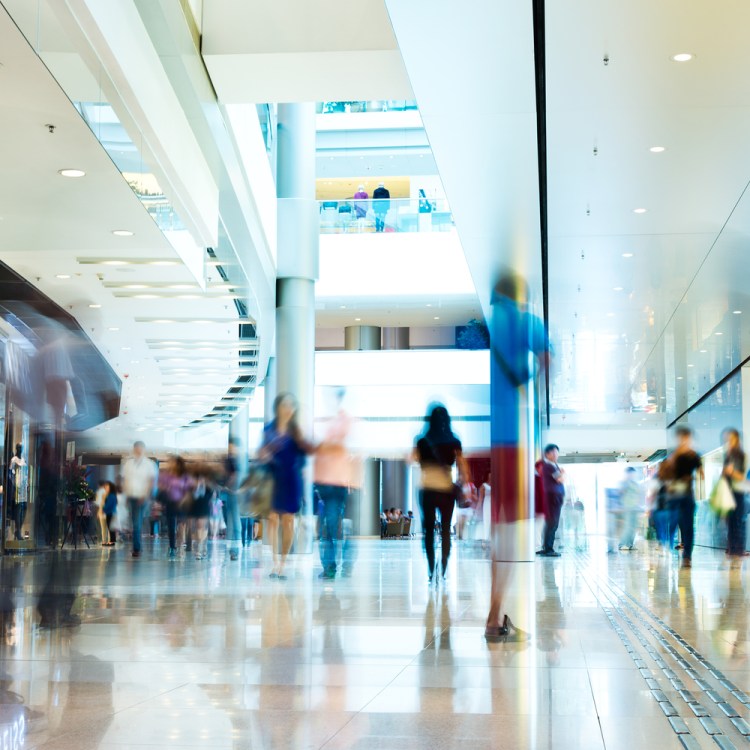This post is produced by Microsoft Ventures.
Retailers everywhere are challenged to provide unique and outstanding customer experiences that combine personalized service with the power of digital, data-driven technologies. An up-and-coming category of startups are tackling technology solutions that can help retailers bridge the divide between physical and digital. Microsoft has the privilege of working with some of the emerging new leaders in this area and I’d like to share a few of their stories with you.
Sensors and tracking tech chart new territory for retail
In any industry, but especially in retail, understanding how customers pay, what they shop for, and what they ultimately purchase are critical pieces of business intelligence. Online, retailers can precisely track user behavior and use data to understand and predict the sales journey. But in the physical world, there hasn’t been an easy way to capture and analyze foot traffic, or put that information to business use.
Kimetric is an Argentina-based company that delivers real-time customer analytics for brick and mortar retailers. Kimetric works with Kinect for Windows to track customer movement in a retail environment, giving retailers new insights into a customer’s behavior, including traffic patterns, conversion rate, time of visit, and bounce rates. That ultimately helps the retailer create a tailored experience for each customer.
Scanalytics out of Milwaukee has developed a sensor-based analytics and engagement platform for physical spaces using a technology they call SoleSensor, an intelligent floor mat that digitally measures real-world foot traffic. Similar to a touchscreen on the floor, the technology measures presence detection through impression-based activity. With a simple plug-and-play installation, the SoleSensor anonymously captures 100% of foot traffic to be analyzed and displayed on their cloud-based platform. In a retail scenario, Scanalytics enables marketers to understand traffic flow, create interactive environments, and improve customer service.
Reaching out for higher levels of engagement with beacons
Beacons — low-cost, short range transmitters that communicate with mobile devices via Bluetooth — are rapidly becoming a key technology for enriching physical spaces with digital content and data. Typically, they require user participation, first in permitting the connection and then in engaging with the location-based content. That participation suggests a level of mutuality and trust on both sides. In order for customers to willingly divulge their location, and their in-store and in-app behaviors, they must have the perception they’re valued by the brand — and be rewarded accordingly. Brands can create this value for the consumer through conveniences and efficiencies facilitated by the app, through personalized offers and coupons, and/or via loyalty points or rewards.
Footmarks is a Seattle-based startup that offers a secure iBeacon solution to bring digital intelligence to real-world surroundings — and allows consumers to connect with the places and brands they regularly visit and experience. Footmarks has teamed up with Avanade to power retail-based customer engagements via personalized, beacon-enabled user-to-user messaging. Together, the two companies showcase what is possible with beacons beyond broadcast messages and coupons. Their social shopping experience highlights the innovative digital and cloud-based capabilities that are part of Avanade’s Connected Retail Experience, created with Footmarks. Footmarks, with support from Avanade, will build out the first beacon-enabled, social-sharing solution for the connected retailer. With this technology, Footmarks can offer features such as cloud-to-location based messaging, virtual shopping-lists, even the ability for a consumer to purchase an item and leave it within that retailer’s beacon cloud for another consumer to pick up at any store throughout the chain.
Sensorberg, based in Berlin, also uses beacons to create a new level of engagement for the retail customer. Their system sends notifications that correspond to specifically pre-arranged services such as ticketless check-in, indoor navigation, latest offers, sales discounts, or cashless payments. When you enter a coffee shop, you could get the brew of the week on your phone. Or a shopping mall could display a map to help you find the right store. It could power a new payment system as well. The ability to pre-define and measure these services helps retailers carefully track performance and maintain real-time visibility into the business.
It’s all about the data
Each of these innovators is using new front-end technology like beacons and sensors to give retailers better data about what’s going on in their stores and how customers are engaging with merchandise, service staff, and their environment. But the real key to putting this data to work for the business is ensuring that it connects and integrates with existing business systems in a secure, end-to-end environment. For more information about how Microsoft, its partners, and members of the startup ecosystem can empower retailers with digital solutions for the physical world, go here.
Tzahi (Zack) Weisfeld is Head of Microsoft Ventures Europe and Global Accelerators Program. Business Insider (May 2014) named Zack as one of the 10 top Most Influential Israelis in Tech Worldwide.
Sponsored posts are content that has been produced by a company that is either paying for the post or has a business relationship with VentureBeat, and they’re always clearly marked. The content of news stories produced by our editorial team is never influenced by advertisers or sponsors in any way. For more information, contact sales@venturebeat.com.

